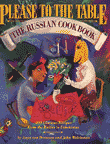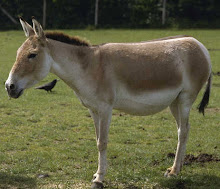
I've finally figured out how to squeeze in time to watch movies, and have at last watched Schizo, the only Region 1, English-subtitled Kazakhstani film I know of (Nomad: The Warrior is scheduled for DVD release in July). I’ve had it around for over a year, but was somewhat hesitant to watch it because of the publicized “Fight Club” aspects (I don’t do blood well). So now I’ve seen it, and I’m glad I did. It’s sticking with me, and making me wonder and think -- and not about the bloody (icky) parts.
Basic plotline -- a 14-year-old boy in rural KZ gets kicked out of school and works for/with Saukura, his mother’s boyfriend, finding men to participate in bare-knuckle fights against trained boxers. One of the recruits gets mortally beaten, and with his dying breath asks Mustafa (called Schizo, as in schizophrenic, by himself and others) to take the advance money to his girlfriend and his son, who live at the edge of town. Schizo goes back to this house again and again, bringing gifts and money, advocates for the boy’s welfare, finds enjoyment in the woman’s company and eventually makes love for the first time with her. These three form an odd, tenuous sort of family, but with no cementing bond. Schizo gets deeper into the sordid doings of the fist-fight gang, gets double-crossed, and apparently gives himself up for the wellbeing of Zina and Sanzhik.
Yes, I got queasy at the fight scenes (full disclosure: I also can’t make it through a First Aid training film without hyperventilating and dizziness), but the majority of the violence (and all the sex) in Schizo is implied, off-screen. What we see is the aftermath, the emotions (or lack thereof). For me, Schizo remains an enigma. He’s the age of your average American 9th grader. What goes on in his head is a mystery. I read several other reviews stating that Schizo “falls in love” with Zina, but I’m not sure I entirely believe that. He is drawn to this odd couple, the sort-of-widow stuck with an orphaned child (hmm, does he see his mother in Zina, and himself in Sanzhik?) He does what he can do to make sure the boy is cared for. He sleeps with Zina -- “becoming a man.” There is something there for him that endures and sustains him. Sometimes that’s the best any life can offer.
What I do know is that for me, Schizo is a beautiful, haunting film. The landscape is both lush and barren. It’s set somewhere in the southeast steppe but away from the mountains, on a waterfront big enough for something that looks like a fishing industry (Lake Balkash?). The post-Soviet bleakness is apparent, and as the director, Guka Omarova, states in the interview extras, not too different from contemporary rural life and opportunities. The ethnic diversity of Kazakhstan is well portrayed, as are the inter-ethnic relationships - both Zina and Sakura are Russian, while Schizo and his mother Kulgash are Kazakh. I’d say that the description of Olga Landina (Zina), as a “Slavic Sissy Spacek,” is right on.
It’s very interesting to me that both Olzhas Nussuppaev (Schizo) and Kanagat Nurkay (Sanzhik) were “unknowns," “discovered” in orphanages. It’s interesting that the director went looking and held auditions in orphanages to begin with. In the interview extras, Nussuppaev seems only slightly more animated that he does in the film, with the same engaging crooked smile. Was he really only playing himself? I can only imagine the surreal aspects of going from Internat to Almaty to New York, with little-to-no life preparation for any of it. He says he hopes to act again. I hope he makes it.

The original US release plans included multiple cities across the country, but lackluster box office takes made them pull it after a few weeks. It’s a shame. It’s no worse and a lot better than many of the foreign ‘art films’ I’ve seen, and it might have found a following if marketed as such. I wouldn’t take anybody younger than 14 or 15 to see if, but whomever you see it with, I’d predict lots of questions and things to talk about afterward.
What others have written about Schizo:
New York Times
San Francisco Chronicle
ReelTalkMovie Reviews
Emanuel Levy


7 comments:
Thanks for the great film review. I'm quite curious now. Any chance I might be able to find the film here in Bishkek? Is it available locally in Kazakhstan? What's the title in Russian?
I would think you could get a DVD in Bishkek (at least via Almaty). The title is the same in Russian, Шиза (I think that was how it was spelled in the titles). Dialogue is in Russian, not Kazakh.
Gulnara, you're the film expert -- how would NonPon go about getting the DVD?
If you are in Bishkek, you can buy it in a big DVD store. I am in Almaty right now, will check it in the local stores.
So, I've checked the local stores. They don't have SHIZO. But they have tons of kazakh movies with subtitles...
Go on ebay or amazon, sorry...
Tough and tender
There are two lines of action running next to one another: one is located in the dim world of crime, where illegal fights are shown with brutal bloody actions and the other one is a love story between Shiza the hero of the plot and Zinka a single mother who offers Shiza a warm bed and a family feeling. While Shiza’s criminal career goes steeply down-hill (a bank raid,a murder and imprisonment) in the end there will be Zinka and her son waiting for him.
This true happy ending is only made possible and comes across well because the story is told from a distance virtually like a documentary. The exciting thrill is maintained because of a few astounding sudden turns such as Shiza’s knock-out by Zinka or when Shiza kills his mentor when he tries to cheat. Even hidden humour is there e.g. the doctor’s treatment after being paid with eggs and fish. Moreover there are a few optical highlights: red apples rolling along the road, the goggles of Zinka’s son and the closing scene. Cutting a long story short the film is worth watching.
The goggles are a great image, aren't they, a symbol of the connection between Schizo and the boy Sanzhik. The final scene was curious, and powerful. Thanks for commenting.
Post a Comment